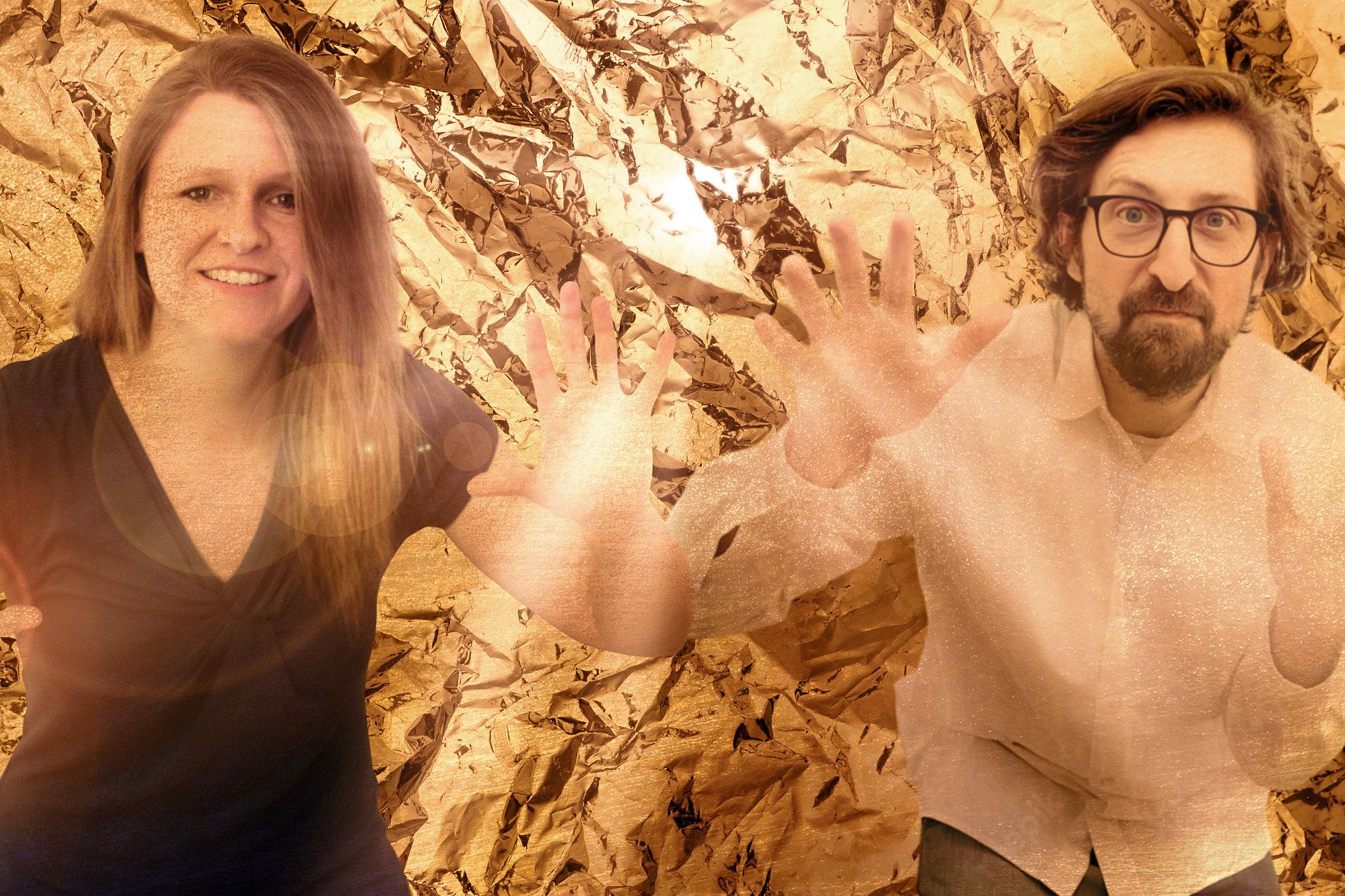Modern-day alchemists

The “El Dorado 2.0 – unlock the gold in your pocket” project has won the 2022 Agora Optimus prize. The project highlights the importance of recycling electronic waste to recover gold.
Most everyone carries a little gold on them. But not necessarily in the form of jewellery: gold is also hidden away in our mobile phones. According to Wendy Queen, a chemist and head of the Laboratory of Functional Inorganic Materials at EPFL Valais, we should all be aware of this “treasure” and the importance of recycling electronic devices. Indeed, recycling makes it possible to recover the precious metals contained in devices. For this reason, Queen and her colleague Mirko Bischofberger, until recently head of communication at EPFL, submitted their project titled “El Dorado 2.0 – unlock the gold in your pocket” to the Agora funding scheme. This year, the project won the Agora Optimus prize. The prize will be awarded at the ScienceComm conference on 22 June 2022 in Bern.
What is the aim of the research done in your laboratory?
Wendy Queen: We make molecules that efficiently and selectively capture large quantities of rare elements dissolved in liquid. Think of these molecules as very porous sponges. A single gram of the material can have a surface area as large as a football field.
How did you decide to focus on recycling gold?
We were working on recovering mercury, and I had the idea of optimising our sponges to test gold, whose properties are similar to mercury. And it worked! Although we are still refining the technique, we are at the stage where one gram of sponge enables us to recover one gram of gold. And that’s significant. Gold is a special metal that has played an important role in human history. Gold has been the source of invasions, wars and revolutions. It has inspired artists. People have always been fascinated by gold.
What is the problem with gold today?
Times have changed since gold began to be used in electronics owing to its good conductivity and resistance to corrosion. If electronic devices are not recycled at the end of their life – which is the case for 80% of them – the gold they contain is lost. The gold per device is very small, but if you add it all up, it amounts to more than 10 billion euros each year. And that puts pressure on extraction of gold ore in different parts of the world. It takes nearly a tonne of ore to obtain enough gold to manufacture 40 mobile phones. In the past, gold was never wasted.
The process of recovering gold that you’ve developed sounds very technical. Why did you submit this project to the Agora scheme, which is intended for the general public?
That’s just it! We wanted to raise public awareness. I think communicating on the subject of recycling precious metals, and gold in particular, is very important. When people change their behaviour – for example not buying a new phone every year – it can have a major impact. Consumption of these devices is increasing, and resources are limited.
How exactly do you propose to raise public awareness?
We want to create a fun way of demonstrating in real time how you can recover gold from a mobile phone. We plan present it in venues open to the public, such as EPFL or science museums. But not only that. We are also thinking about presenting it in the Glattzentrum in Zurich, one of the most popular shopping malls in Switzerland, whom we are working together with. That way we could reach many people, especially families with children. After all, they are the future consumers of electronic products. Moreover, we will provide educational material to anyone who is interested. Finally, we are also planning workshops and conferences.